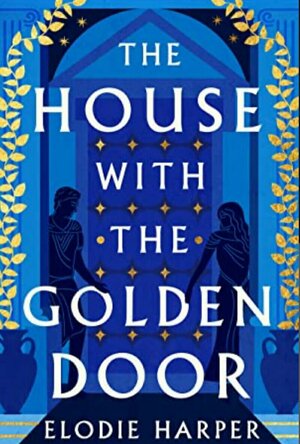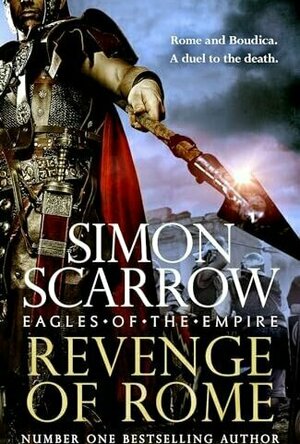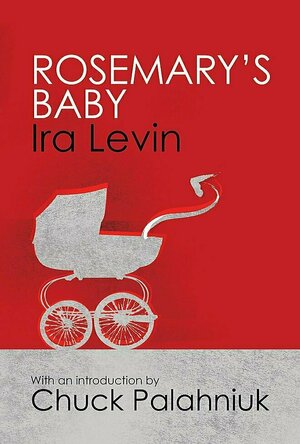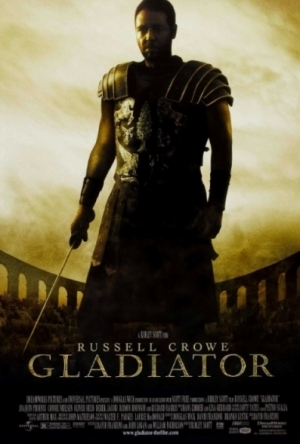Search
Search results
Debbiereadsbook (1659 KP) rated The Vampire's Curse (Beyond The Mist #1) in Books
Apr 13, 2022
good enough for me to want to continue with the series.
Independent reviewer for Book Sirens, I was gofted my copy of this book.
This is the first book in the Beyond The Mist series, and as such lays down the ground work, the background into these vampires and how they came to be.
I enjoyed it, I did. It didn't blow me away, but it's left me intrigued enough to want to continue on with the series.
Not least because there are a whole host of characters we meet here who now need their stories. Korinna, especially and Roman, I think, needs a happy ever after. Andrei's brothers too.
Some smexy times, some violence, some darker themes. Vampires who shift! I liked that, it's different.
All in all, a good read, for me, but not a great one.
so, 3 stars, but I will continue with the series.
*same worded review will appear elsewhere
This is the first book in the Beyond The Mist series, and as such lays down the ground work, the background into these vampires and how they came to be.
I enjoyed it, I did. It didn't blow me away, but it's left me intrigued enough to want to continue on with the series.
Not least because there are a whole host of characters we meet here who now need their stories. Korinna, especially and Roman, I think, needs a happy ever after. Andrei's brothers too.
Some smexy times, some violence, some darker themes. Vampires who shift! I liked that, it's different.
All in all, a good read, for me, but not a great one.
so, 3 stars, but I will continue with the series.
*same worded review will appear elsewhere
Lyndsey Gollogly (2893 KP) rated Rosemary's Baby (Rosemary's Baby, #1) in Books
Jun 13, 2022
106 of 230
Book
Rosemary’s Baby ( Rosemary book 1)
By Ira Levin
⭐️⭐️⭐️
Rosemary Woodhouse and her struggling actor-husband, Guy, move into the Bramford, an old New York City apartment building with an ominous reputation and only elderly residents. Neighbours Roman and Minnie Castavet soon come nosing around to welcome them; despite Rosemary's reservations about their eccentricity and the weird noises that she keeps hearing, her husband starts spending time with them. Shortly after Guy lands a plum Broadway role, Rosemary becomes pregnant, and the Castavets start taking a special interest in her welfare. As the sickened Rosemary becomes increasingly isolated, she begins to suspect that the Castavets' circle is not what it seems.
This is a book I’ve been wanting to read for so long and I finally got round to it! I think I was expecting more while I did enjoy the read it didn’t live up to expectations. It was chilling in places but fell a bit flat for me!
Book
Rosemary’s Baby ( Rosemary book 1)
By Ira Levin
⭐️⭐️⭐️
Rosemary Woodhouse and her struggling actor-husband, Guy, move into the Bramford, an old New York City apartment building with an ominous reputation and only elderly residents. Neighbours Roman and Minnie Castavet soon come nosing around to welcome them; despite Rosemary's reservations about their eccentricity and the weird noises that she keeps hearing, her husband starts spending time with them. Shortly after Guy lands a plum Broadway role, Rosemary becomes pregnant, and the Castavets start taking a special interest in her welfare. As the sickened Rosemary becomes increasingly isolated, she begins to suspect that the Castavets' circle is not what it seems.
This is a book I’ve been wanting to read for so long and I finally got round to it! I think I was expecting more while I did enjoy the read it didn’t live up to expectations. It was chilling in places but fell a bit flat for me!

The House with the Golden Door
Book
Amara has escaped her life as a slave in Pompeii's most notorious brothel. She now has a house, fine...
Historical fiction Roman Empire Pompei Feminism
Debbiereadsbook (1659 KP) rated Roman's Gift in Books
Aug 21, 2022
I was gifted my copy of this book, direct from the author.
Ms Pratt has a way with words, writing contemporary, that few can master. She nails it here, she really does.
I loved that Roman is given the voice, rather than Juliette. It's been a long, LONG time since I read a book written entirely from the male's POV only, but I loved it here.
Juliette kinda annoyed me at points, and I think, had she been given a voice, I might not have enjoyed this quite so much.
Roman's PTSD is dealt with sensitively, and very well. It's hard reading, but Ms Pratt delivers it, at every level. Made me cry a time or three. I loved when he realizes those cloest to him really are his family, his found family, but still.
A not easy, but very well written and delivered, 4 stars and I thank you for my copy!
*same worded review will appear elsewhere
Ms Pratt has a way with words, writing contemporary, that few can master. She nails it here, she really does.
I loved that Roman is given the voice, rather than Juliette. It's been a long, LONG time since I read a book written entirely from the male's POV only, but I loved it here.
Juliette kinda annoyed me at points, and I think, had she been given a voice, I might not have enjoyed this quite so much.
Roman's PTSD is dealt with sensitively, and very well. It's hard reading, but Ms Pratt delivers it, at every level. Made me cry a time or three. I loved when he realizes those cloest to him really are his family, his found family, but still.
A not easy, but very well written and delivered, 4 stars and I thank you for my copy!
*same worded review will appear elsewhere

The War Prince (Warrior #3)
Book
AD 61, Rome. Felicitus, a young historian, agrees to meet the old warlord Caratacus in a city...
David McK (3713 KP) rated Gladiator (2000) in Movies
Nov 20, 2024
Are you not entertained?
"The General who became a slave.
The slave who became an Gladiator.
The Gladiator who defied an Emperor.
A gripping tale, is it not ..."
So says Joaquin Phoenix's Emperor Commodus towards the end of this movie, talking to his erstwhile friend Maximus (Russel Crowe), after seizing power in the early parts of the film and believing the General to be dead in Germania (as per his command) and after also killing Maximus's wife and son.
The plot, then, basically, is a straight A to B revenge.
This, I believe, is also the film that launched Russel Crowe and Phoenix both to stardom - I struggle, personally, to think of any other since where either have been as electric as they are in this movie.
It may also help that they have a stacked supporting cast, including the likes of Oliver Reed (in his last onscreen role), Connie Nielsen, Richard Harris, Derek Jacobi and Djimon Hounsou and some spectacular action scenes of the Roman games ...
The slave who became an Gladiator.
The Gladiator who defied an Emperor.
A gripping tale, is it not ..."
So says Joaquin Phoenix's Emperor Commodus towards the end of this movie, talking to his erstwhile friend Maximus (Russel Crowe), after seizing power in the early parts of the film and believing the General to be dead in Germania (as per his command) and after also killing Maximus's wife and son.
The plot, then, basically, is a straight A to B revenge.
This, I believe, is also the film that launched Russel Crowe and Phoenix both to stardom - I struggle, personally, to think of any other since where either have been as electric as they are in this movie.
It may also help that they have a stacked supporting cast, including the likes of Oliver Reed (in his last onscreen role), Connie Nielsen, Richard Harris, Derek Jacobi and Djimon Hounsou and some spectacular action scenes of the Roman games ...
David McK (3713 KP) rated Sword in The Storm (Rigante #1) in Books
Sep 7, 2025
This is the first in David Gemmell's Rigante quartet of books, which is really largely a duolougy of two: the first two novels (this and Midnight Falcon in a quasi historical Scottish highlands setting, and the latter two (Ravenheart and Stormrider) set centuries on from the events of the previous novels, still in a quasi-historical Scottish highlands setting (more akin to the times of the English Civil Wars, with the first two more akin to the times of the Roman Empire)
All four novels are also largely 'coming of age' tales, with this entry following the childhood and early adulthood of Connavar, who is given the soul name "The Sword in the Storm" at this birth and who -initially, at least - grows up believing his father - who died shortly after he was born - to be a coward, despite his stepfather Ruathain (his fathers best friend) trying to convince him otherwise.
As with all of Gemmell's work, well worth a read!
All four novels are also largely 'coming of age' tales, with this entry following the childhood and early adulthood of Connavar, who is given the soul name "The Sword in the Storm" at this birth and who -initially, at least - grows up believing his father - who died shortly after he was born - to be a coward, despite his stepfather Ruathain (his fathers best friend) trying to convince him otherwise.
As with all of Gemmell's work, well worth a read!

Revenge of Rome (Eagles of the Empire #23)
Book
AD 61. Britannia is divided. The rebel horde has been defeated. But the leader, Boudica, and her...
Rachel King (13 KP) rated Letters to Ethan: A Grandfather's Legacy of Life & Love in Books
Feb 11, 2019
Right from the beginning, I found the seriousness to which the author, Tom McQueen, approaches his role as a grandfather to his grandson, Ethan, as both endearing and worthy of my respect. What he is attempting to do with the letters found in this book is a commendable goal that not many grandparents may go through the trouble to achieve. Each "chapter" of the book is actually a four-to-six page letter and headed by a quotation that applies to the topic of the letter. Each of the letters address a specific topic, such as Heroism, Risk, Integrity, Love, and Imagination, to name a few. Some of the letters also include excerpts from other sources that McQueen finds wisdom in, such as poetry or short stories like the famous story "Footprints in the Sand." Many of the letters make references to sports and sports imagery, such as citing Wayne Gretsky's accomplishments, which is certainly appropriate for most boys. The letters are also peppered with poignant memories of McQueen's and bits of history, such as the story of George Washington Carver.
It becomes apparent in the first letter that this book has a decidedly Roman Catholic slant, and many of the letters include Catholic doctrine teachings. If the reader does not prescribe to Roman Catholicism, this can be a major obstacle to enjoying this book. The other thing that bugs me throughout the text is that I can not figure out at what age the author intended his grandson to read these letters. Some of the topics are rather mature, and they would not be appropriate for a boy that is too young to receive the advice given in the letter, no matter how well-meaning it is. I also could not decipher if McQueen's grandson, Ethan, was supposed to read these letters while his grandfather was still alive or if they were meant for after he passed - again, this would make sense if the appropriate age were given for each letter.
If I ignore the obvious bias in the letters, I found much of the advice given to be relevant and useful wisdom for a young man - or woman - attaining to adulthood.
It becomes apparent in the first letter that this book has a decidedly Roman Catholic slant, and many of the letters include Catholic doctrine teachings. If the reader does not prescribe to Roman Catholicism, this can be a major obstacle to enjoying this book. The other thing that bugs me throughout the text is that I can not figure out at what age the author intended his grandson to read these letters. Some of the topics are rather mature, and they would not be appropriate for a boy that is too young to receive the advice given in the letter, no matter how well-meaning it is. I also could not decipher if McQueen's grandson, Ethan, was supposed to read these letters while his grandfather was still alive or if they were meant for after he passed - again, this would make sense if the appropriate age were given for each letter.
If I ignore the obvious bias in the letters, I found much of the advice given to be relevant and useful wisdom for a young man - or woman - attaining to adulthood.

The Girl
Book
In this searing and surprising memoir, Samantha Geimer, "the girl" at the center of the infamous...





